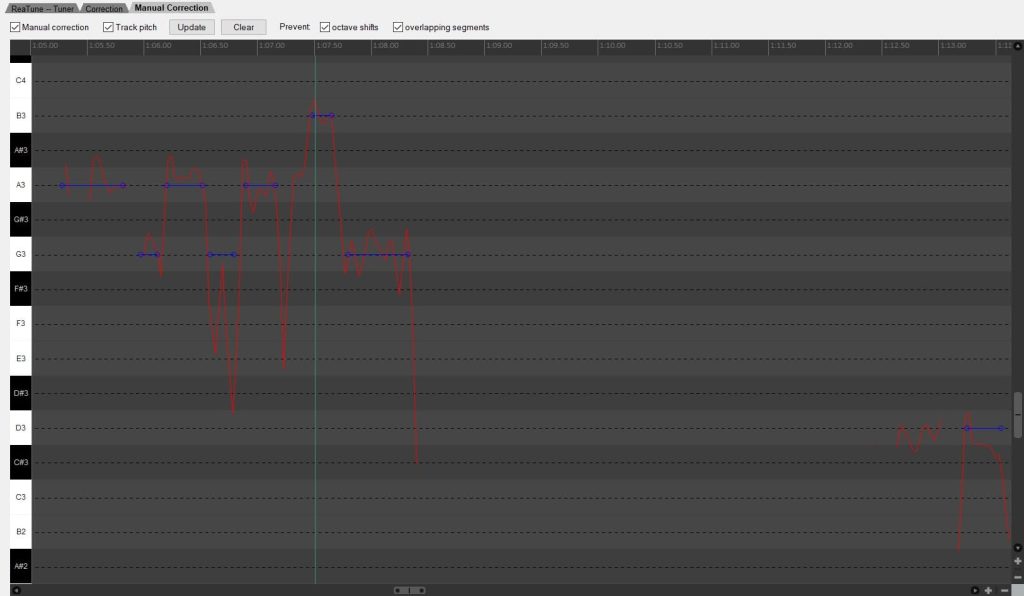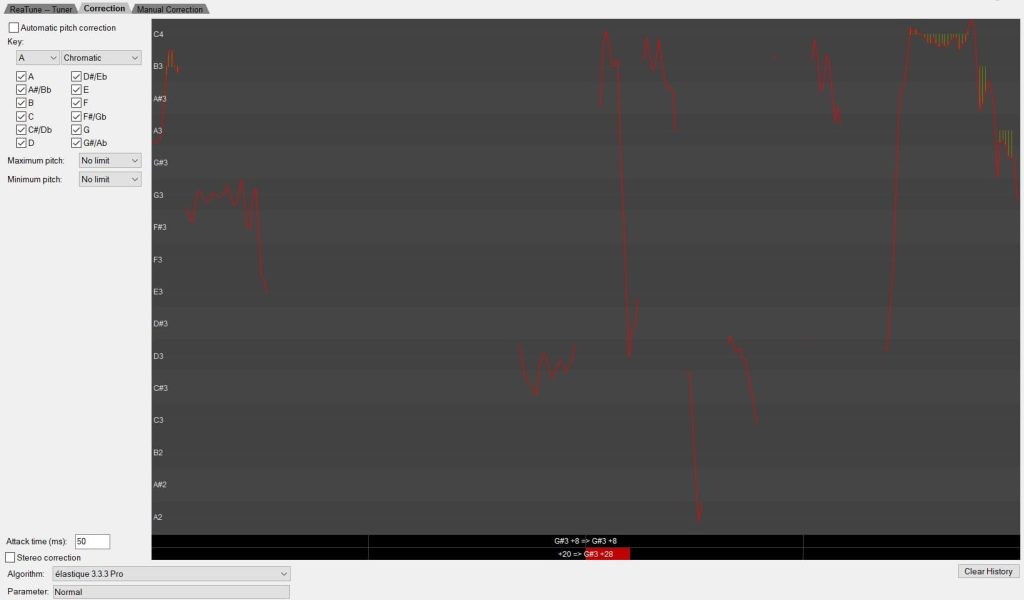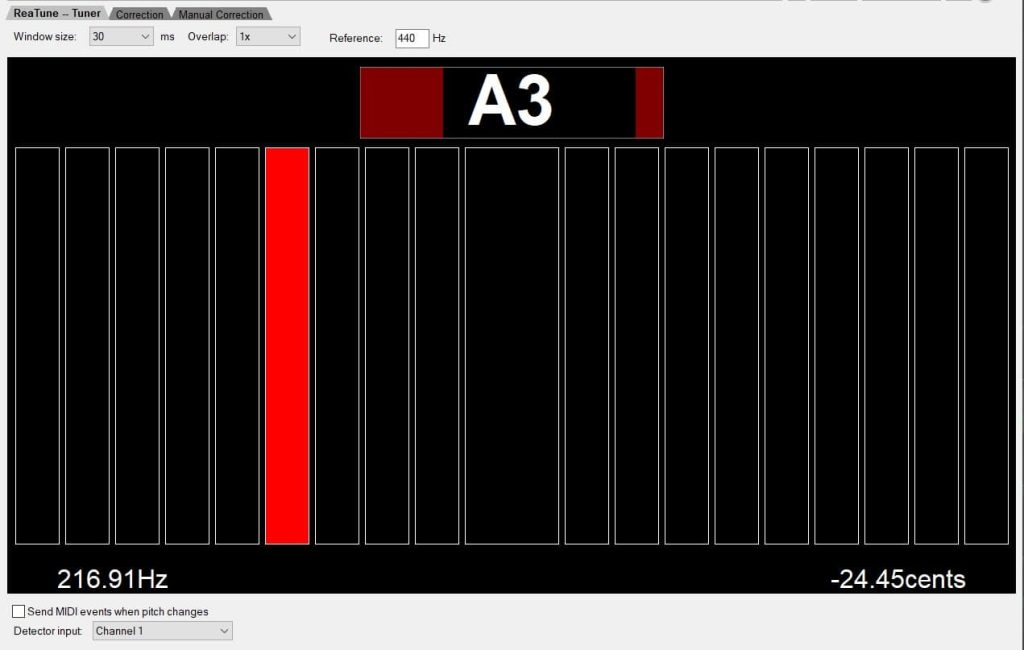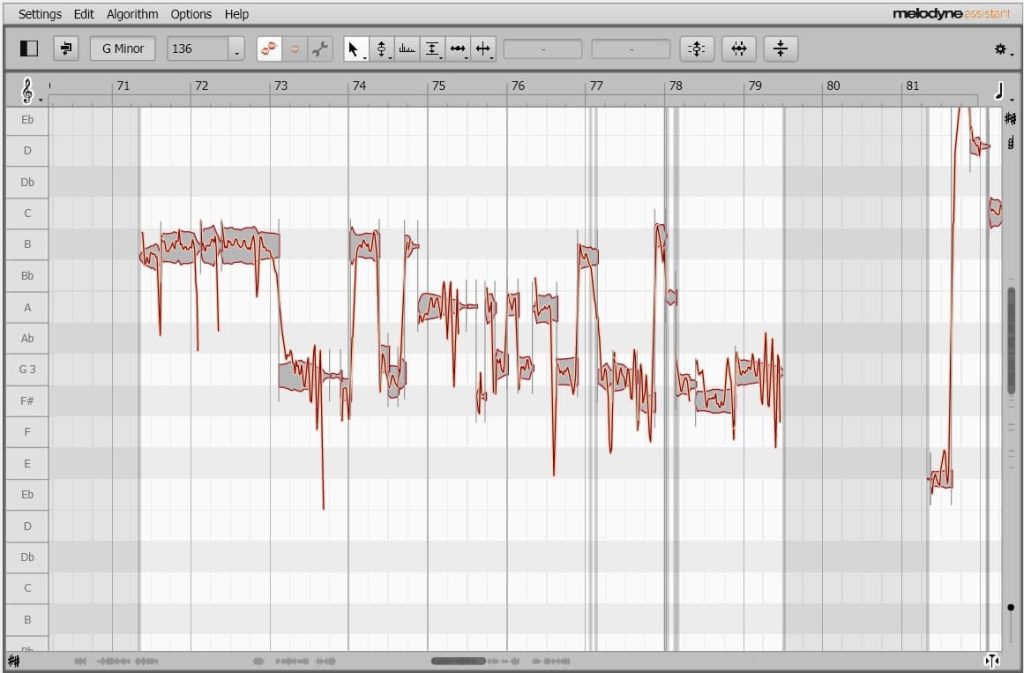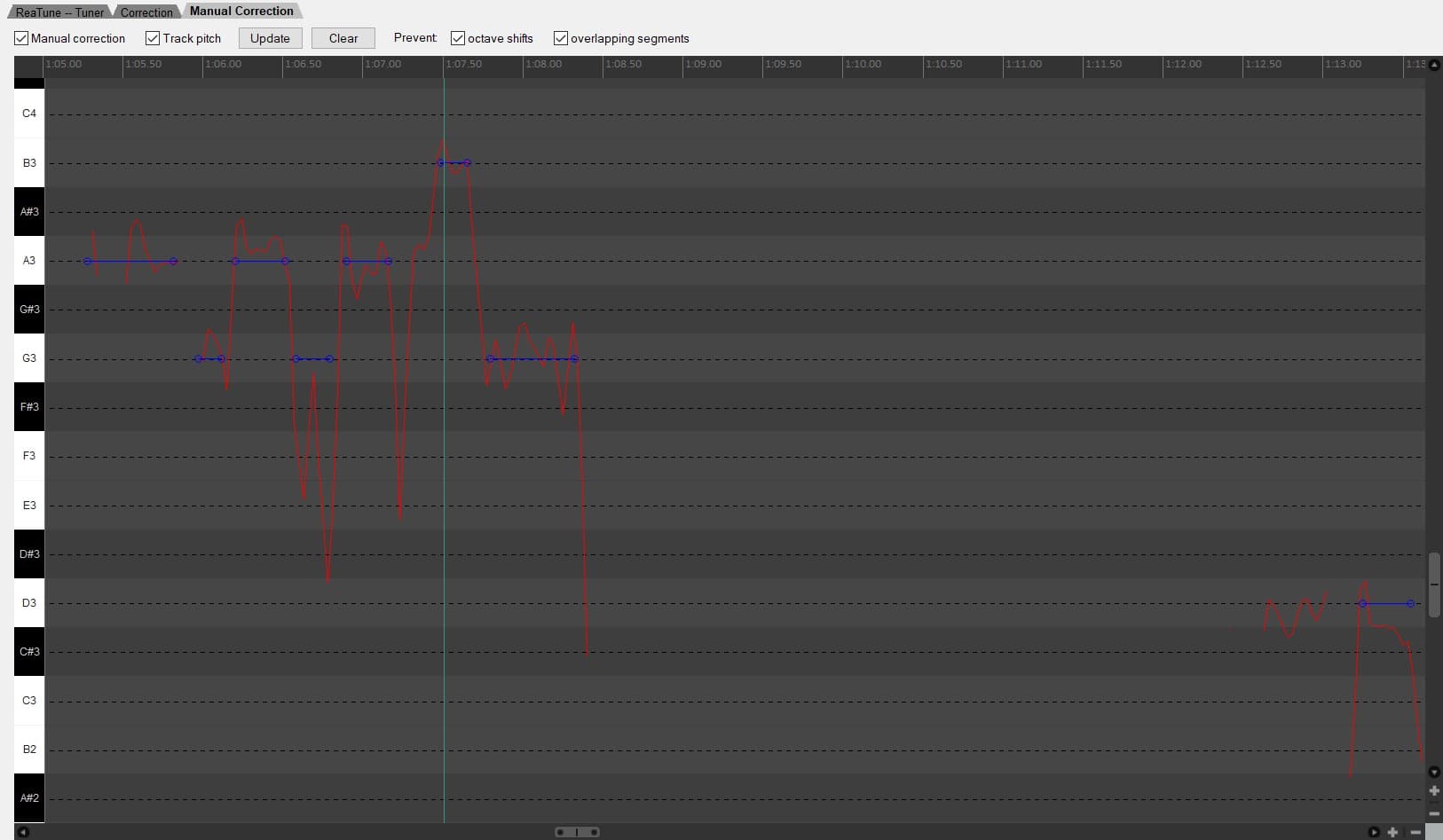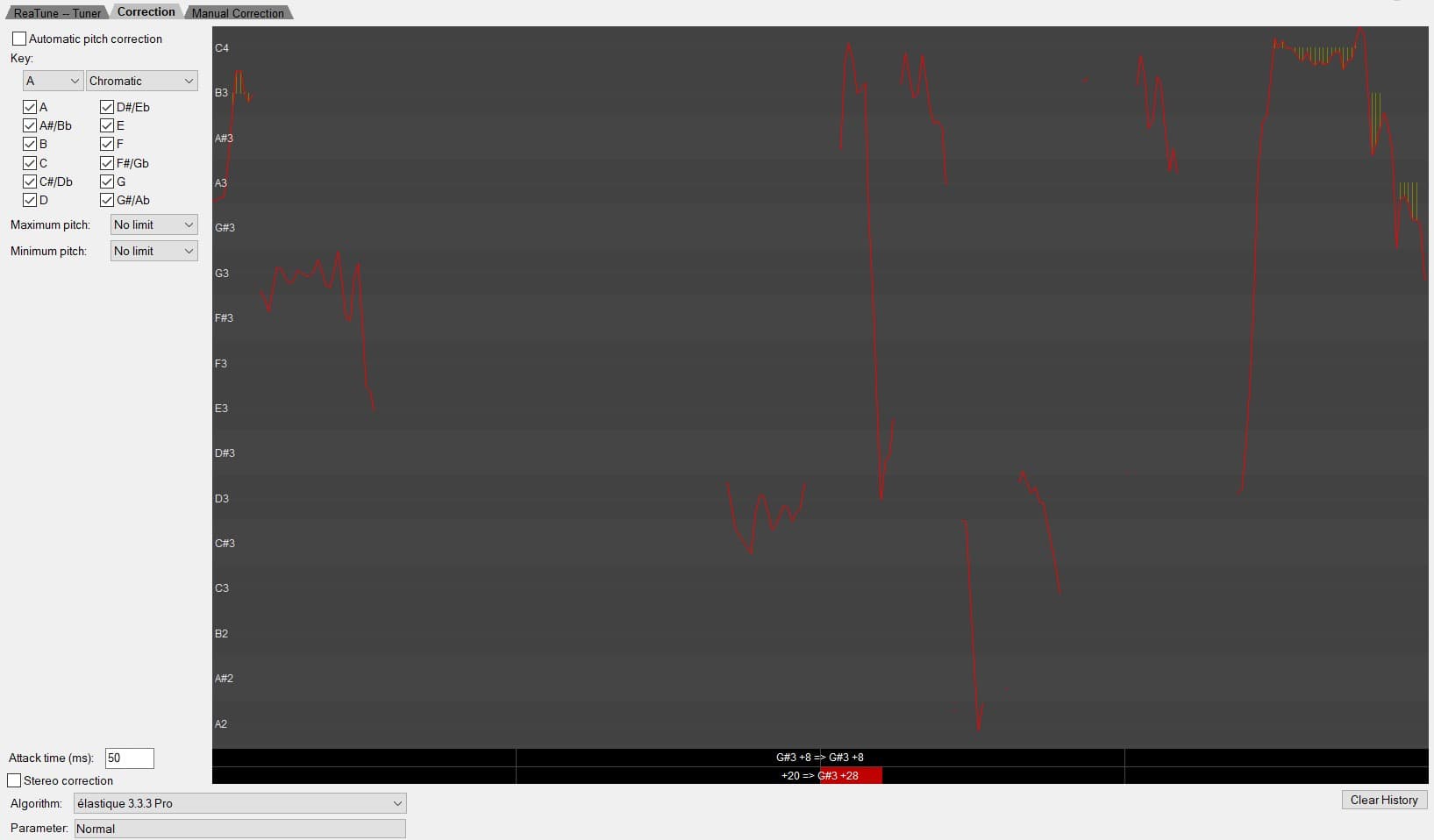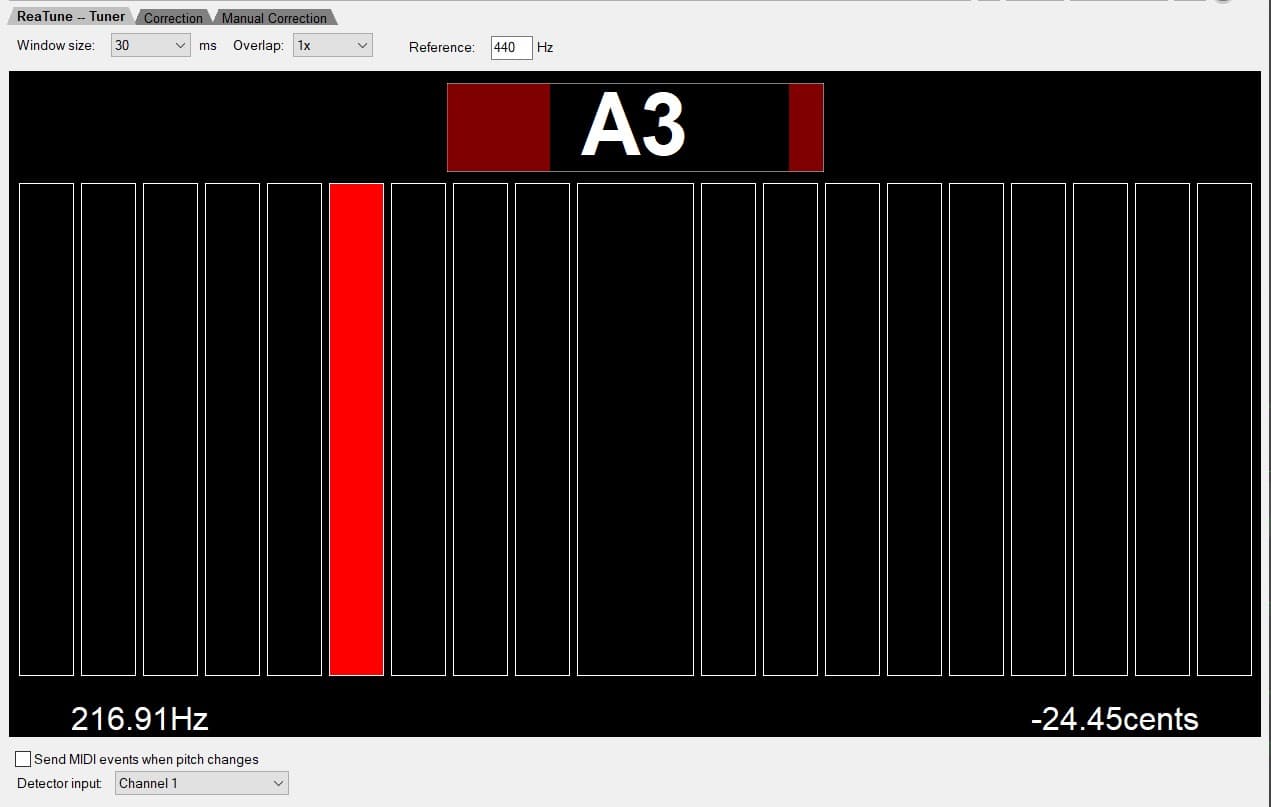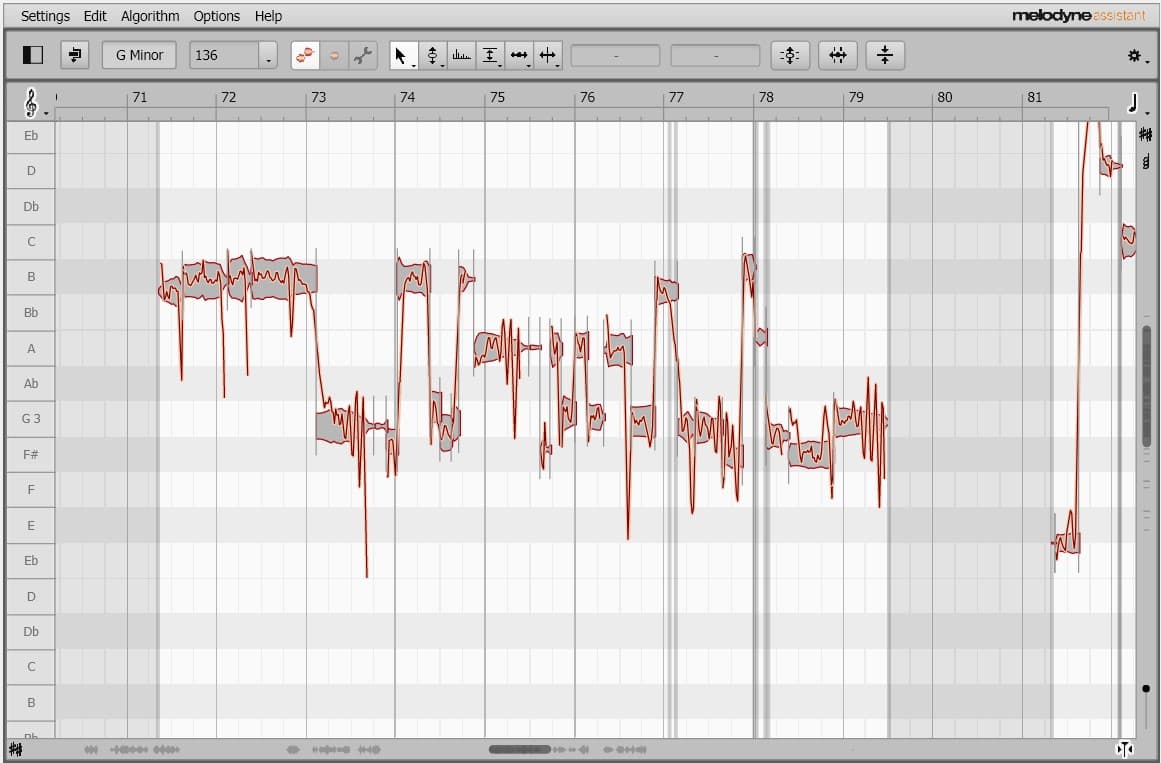ReaTune is Reaper's stock pitch correction plugin and it's quite good. Check it out.
ReaTune In 5 Minutes
ReaTune Basic Functions
ReaTune Manual Correction
The heart of ReaTune for pitch correction, is the 'Manual Correction' tab. To use ReaTune in manual correction mode . . .
The ReaTune Correction Tab
This tab is where you select your algorithm, attack time, key (if you want to specify a key), parameter, and if you want to autocorrect. Soloist or Pro algorithms sound pretty good. Other algorithms may use less CPU.
A slower attack may sound more natural. Remember, 100ms is only 1/10th of a second. For artificial sounding pitch correction, set the attack time very fast.
ReaTune As A Tuner
ReaTune can be used as a tuner. Just . . .
Reaper will give you a green light in the center when you're in tune. To the left is flat and to the right is sharp. The note is shown top-center and the amount sharp or flat in the lower-right.
ReaTune vs Celemony's Melodyne
Celemony's Melodyne, perhaps along with Antares Auto-Tune, are the industry standard for tuning vocals. Auto-Tune is the name of an Antares plugin suite, but people tend to use the word/phrase 'autotune" generically when they talk about pitch correction.
I don't have Auto-Tune, so I'll leave it to others to comment on it.
Melodyne currently has 4 versions, running from Essential, to Studio. I have Melodyne Assistant, which is up one level from Essential, but below Editor and Studio. As I write this, the prices on these editions run from $99, to $699.
Keep in mind, ReaTune is free with Reaper, and the studio version of Melodyne costs 10x what a Reaper license costs!
There's no question Melodyne does more than ReaTune (although you can do most of what Melodyne does with Reaper, you can't do it all from the ReaTune interface). Editor and Studio editions of Melodyne offer polyphonic pitch editing, meaning you can correct the pitch of several notes in a chord. That's something you can't do in Reaper.
Pitch-Correction: What Is Important?
There are three important considerations with pitch correction software. There's the algorithm (the code that works behind the scenes to alter the pitch), the features, an the workflow aspects.
So Why Do I Use ReaTune Much More Often Than Melodyne?
Simplicity and stability. ReaTune is super easy to use. I open it up, left-click and drag a few times, and I'm done. In heavy session, running Melodyne will crash Reaper if I try to run it on multiple tracks.
Zooming in and out in Melodyne is not intuitive for me, so I often get lost. Even though I've used it several times, I still have to look things up. Spending some time in the manual would probably clear the usage problems up, but I'd rather make music and ReaTune works!
Melodyne Is A Good Choice When . . .
Melodyne is definitely high-quality pitch correction software. If you need polyphonic pitch correction, grab it for sure. If you're a pro and have a computer with lots of oomph, it's the industry standard and you should probably have it.
If you're on a budget, ReaTune will do you just fine, and it's free with Reaper. And make no mistake, it's quality pitch correction. I have no qualms about using it on critical vocals.
ReaTune Conclusion
ReaTune is fully functional, good-quality pitch correction software, and it comes with Reaper. If what you need to do is tune lead or backup vocals, or other monophonic instruments, it's the obvious choice.
Resources
Celemony's Melodyne can be found here.
ReaTune comes with Reaper. You can download a fully-functional 60-day trial here.

